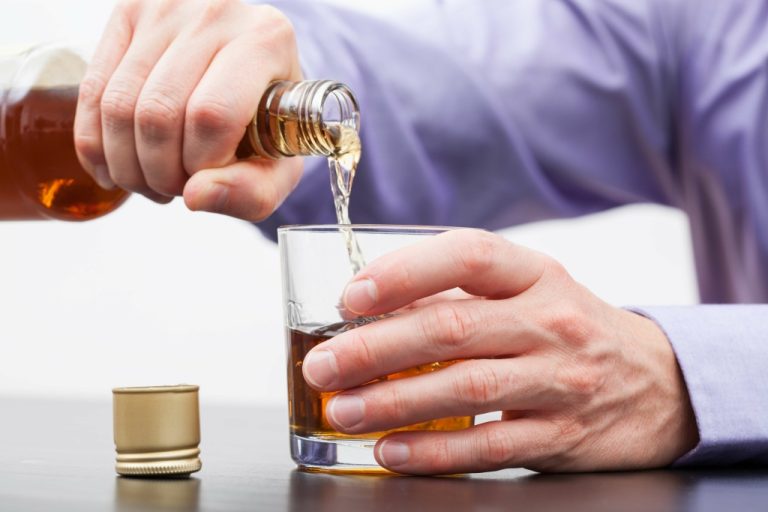Content
So, lasting substance use recovery depends, in part, on a better relationship. Sometimes loved ones will transition into an enabler when trying to help their loved one recover from substance abuse. If you begin to recognize these symptoms or behaviors in your partner, https://ecosoberhouse.com/ there may be a chance he or she is abusing drugs or alcohol. There are other tell-tale signs that your spouse may be addicted. Some of the more subtle signs include a sudden increase in formally shared household responsibilities such as cleaning or child rearing.
- Family programs also provide a thorough education on the science and behavior of addiction as well as the signs of relapse and the steps to remain substance-free.
- Researchers have found important links between substance abuse and divorce.
- By educating families and providers on the unique program offered at Burning Tree Ranch, Julian seeks to create as many opportunities as possible for the chronic relapser.
- Born and raised in Kaufman, TX, she has been bringing value to the Burning Tree team since 2017.
- Vertical dotted line indicates the beginning of methadone taper.
While those struggling with substance abuse are responsible for their own behavior, there can be family dynamics that increase the odds of addiction. Being in recovery together, even if you’re not actively addicted, can help you heal psychological wounds that may be holding you back, too. You’ll find there are helpful programs for the partners of recovering addicts and your children, too. Al-Anon, for instance, helps families of alcoholics with a program that’s similar to the 12 steps of AA.
What It’s Like Being Married to an Addict
“I like to meet people where they are at, listen and learn. Most recently, she has begun pursuing her counselor’s license. In her free time, Sarah enjoys reading, traveling, exercising and exploring the great outdoors.
In the meantime, note specific moments when you notice your loved one is struggling with something or neglecting things they used to love. You can use this information to encourage them to seek something better, rather than to shame them. More often than not, people who are confronted in interventions are defensive. You don’t want to make them feel humiliated or accused or to give them the impression you are trying to coerce them into doing a specific thing. Our first instinct is often to intervene and lecture our loved ones out of anger and/or the desire to protect them from endangering themselves and others.
Abuse vs. Addiction
This may be especially true if only one member of the couple is involved with illicit drug use. In a longitudinal follow-up to this work, Homish & Leonard found that discrepancies in heavy drinking between husbands and wives were predictive of decreased marital satisfaction through the second wedding anniversary. Importantly, the finding was not dependent on whether the husband or wife was the heavy drinker. Roberts and Leonard use the term “drinking partnership” to describe how couples integrate alcohol use into the relationship. The “drinking partnership” describes the match, or lack of match, between the amount and context of use for husbands and wives alcohol consumption. Within the examination of the drinking partnership construct, it was found that it was the discrepancy between the husbands and wives that related to relationship difficulty.

Being involved in a close relationship with someone who is suffering from addiction can be a roller coaster of emotional stress, chaos, and violence. The behaviors addiction causes include mental and physical abuse to loved ones. This can destroy trust, which is an essential part of any healthy relationship. When children are involved, addiction can prompt arguments over parental responsibilities, cause neglect, and even endangerment. Financial Troubles — some people struggling with substance abuse or addiction spend 50 percent or more of their income on drugs. In marriages, this can cause trust issues and financial problems.
Daily Marriage Tip
There are many people who are addicted to a drug who do not have trust issues when they are not using the drug. However, the addiction causes them to lose trust in others and in their relationship with their spouse. The phrase, “this pain is temporary,” is one that rings true for many people married to addicted spouses or spouses marriage after sobriety in recovery from addiction. Living with someone who is addicted to drugs or alcohol can be emotionally draining. This can cause anger, confusion, sadness, anxiety, and increased stress. If you are in a relationship with someone who is suffering from addiction, you have seen the horrible effects that the disease can bring.

She believes in the virtues of honesty, integrity, and compassion. Happily married, Sally enjoys the beach, reading, and eating her favorite icecream with her husband, Matt. I’m a therapist and work in substance abuse and dropped my parter off at rehab bc it was his choice, I’m very proud of him. He got out and moved in with his parents, I am pro that or a sober living house, I saw him once and gave him the biggest hug ever.
The Life-Threatening Effects of Substance Abuse
Many people who suffer from a substance use disorder are in denial. Addicted partners often rationalize or minimize their drug or alcohol use. Even in the event of self-awareness, the confronted party may still become angry, resentful, verbally abusive, or accusatory to avoid admitting to a problem. Knowing the damage drug and alcohol use cause families, it’s natural to wonder if a marriage can survive drug addiction.
How can I help my spouse with addiction recovery?
If you’re able, participating in the recovery process is always ideal. Couples therapy focused on addiction can be a great way of supporting your spouse and working through any feelings of resentment or betrayal.
You can also help your spouse by committing to sober living with them. For example, if your spouse is recovering from alcohol abuse, you can decide to no longer drink socially to show your solidarity.
Significant declines in marital satisfaction were evidenced for each group. Future work will need to examine if discrepancy in the type or frequency of drug use relates to relationship functioning. Additionally, future work will need to include non-married, cohabiting couples, as well couples involved in marriages other than their first. For example, in a sample of newlywed couples involved in their first marriage, the relation between patterns of alcohol use and marital physical aggression was examined (Quigley & Leonard, 2000).
Is Divorce Inevitable When One Spouse Has An Addiction?
Romantic relationships where at least one partner is dealing with addiction likely include a great deal more conflict than most. Trust issues, hurt feelings, and anxiety can be side effects of substance abuse in a relationship — for either partner or for both. These issues slowly wear away at relationships, gradually leading to the dissipation of happiness that eventually leads to relational failures, and not just the romantic kind. Because addicts continue to use despite consequences, they usually lose their jobs, financial stability, health, and relationships. Relationships are probably the most saddening because it involves other people. People, whether immediate family, friends or spouses that only wish the best for the addict, who care and love only to get nothing in return because of the addiction.
